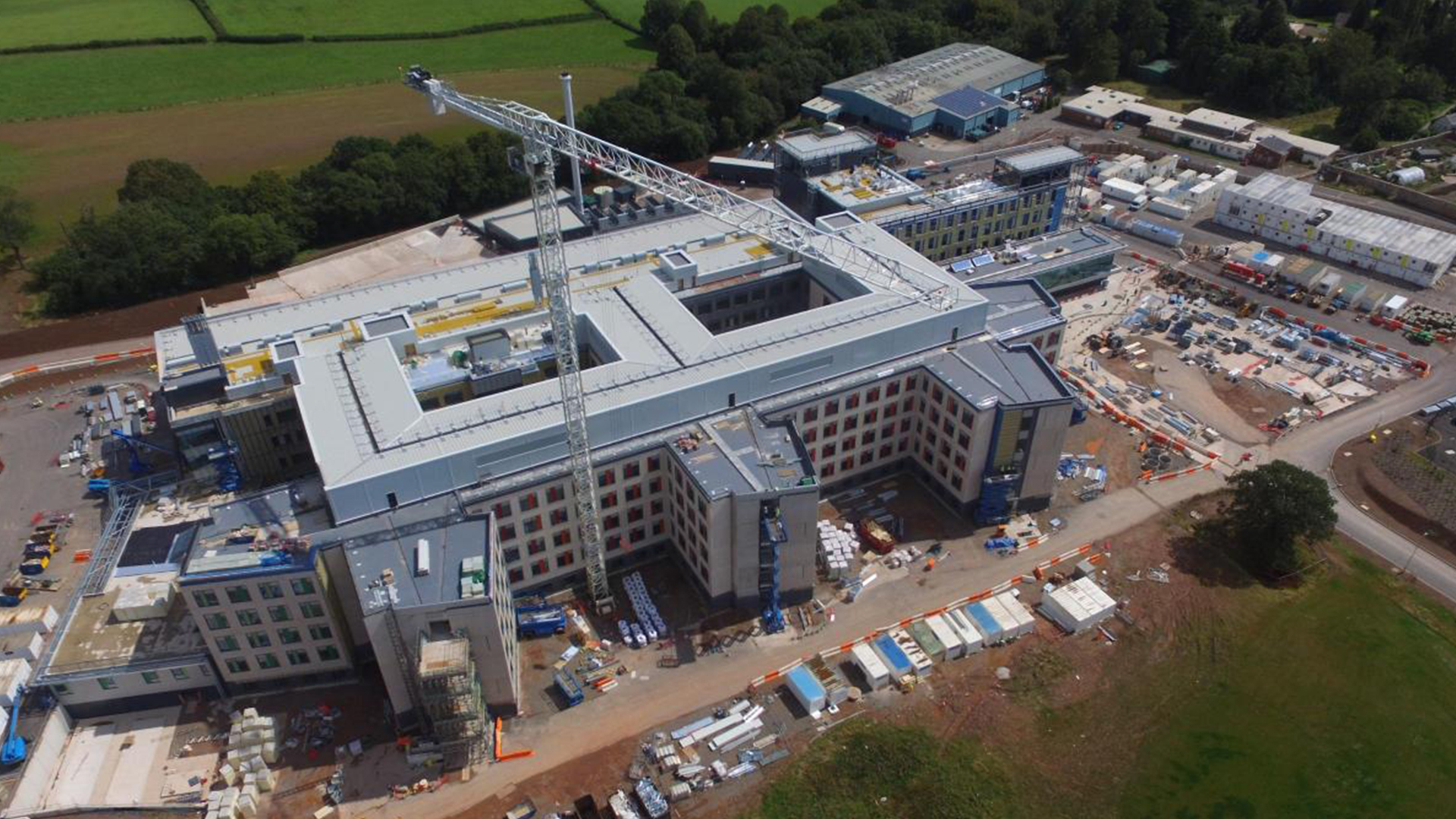Project fire worked alongside contractors and the local health board to ensure part of the Grange University Hospital opened almost a year early to help support the region’s fight against Covid-19 and provide vital beds.
By the end of March, over half of all Welsh Coronavirus cases where in the south-west and the figures were rising fast. The local health board decided that a drastic plan of action was necessary to mitigate the predicted worst case scenario.
The local board asked the project team to fast-track part of the Grange University hospital build, which was originally due to be completed in spring 2021. The plan was to make a number of wards temporarily available by the end of April for potential overflows of Covid-19 patients. In addition, Minister Vaughan Gething approved an extra £10 million to speed up the project and ensure such a rapid 4 week turnaround was possible.
By the end of April, the project team and contractors had achieved their ambitious goal. 50% of the hospital space was made available to Covid-19 patients and NHS staff, this included ward blocks, the ground floor of the diagnostic and treatment departments, pathology, pharmacy, FM, the mortuary, and car parking facilities. What’s more, 385 beds were now ready for Covid-19 patients instead of the 350 beds predicted.
“The challenges facing our health board and NHS in Wales due to Corona virus is unprecedented. We are hoping this will provide us with up to an additional 350 beds.”
A COLLABORATIVE EFFORT
This mammoth task required extensive resource planning to ensure both a fast track programme and the highest safety measures were achieved. The Aneurin Bevan University Health Board, the Hospital project team and contractors worked closely together on a live site to ensure 384 beds and relevant equipment were ready for the deadline set. The project team reprioritised the site activities and created a new commissioning strategy which created zonal access and reallocation of resources.
Alongside other contractors, Project Fire provided on-site assistance to help fast track the commissioning of the Zonecheck Addressable system so that the hospital was protected and ready for its first patients. Zonecheck Addressable is a sprinkler testing and monitoring system which can help reduce risks by automating sprinkler systems testing. Engineers no longer need travel around the hospital to access drain valves and discharge water, which is extremely beneficial in a clinical environment, concluding why the hospital project team picked the innovative sprinkler solution.
“Everyone on site was faced with an uphill struggle in getting this project ready on time, not to mention the added pressures of Coronavirus. It was great witnessing such innovative methods and genuine expert collaboration and seeing the hospital open in a mere 4 weeks. Our products have always brought two main benefits – minimising disruption and improving safety and so they truly felt like a perfect fit for this project.”
The project was already being delivered using offsite and design for manufacture and assembly (DfMA) which made the incredible 4 week turnaround possible, as the build used around 70% off-site construction. Project Fire has recently designed Firepods, which are pre-fabricated, plug-and-play compact fire sprinkler riser and plant room solutions that use addressable technology for integrated smart testing and monitoring. The Firepods are built and tested off site to speed up installation, reduce labour costs and incorporate automatic testing and monitoring.
The collaborative approach helped to condense the commission and soft landing period from 12 to only 4 weeks, a colossal achievement for all involved. “Since its inception, the Grange University Hospital project has had a true collaborative ethos at its heart – working together for a shared goal, and we’ve stuck to that proudly, tackling every challenge to complete the hospital in record time by adopting a solution based approach.” Victoria Head, Project Director at Gleeds.
Sprinkler system testing at the hospital is now easily managed as there’s no additional site personnel and no security or access issues for engineers because testing is carried out remotely. Project Fire has worked with a number of hospitals across the globe to install remote and automatic sprinkler systems testing, where infection prevention, security and safety is paramount.
THE BUILD CONTINUES
The Grange University Hospital was originally designed to treat the sickest patients in the local Cwmbran area, in south-west Wales. Once the University Hospital is fully built, it will allow other hospitals across Newport, Torfaen, Blaenau Gwent and Monmouth to concentrate on providing routine diagnosis and treatment instead of using resource and time on emergency patients, which will in turn improve the flow of patients for the Welsh NHS system.
Although the beds were, in the end, not used during the peak of the pandemic, the health board insist it was a necessary precaution. “At the beginning of the coronavirus outbreak we needed a plan for the worst case scenario.” Judith Paget, Chief executive for the Aneurin Bevan University health board.
Work continues to be done using segregation methods approved by the infection prevention and building control team as well as fire officers. The project management team, as well as all contractors and developers involved, continue to use the lessons learnt during the fast track 4 week programme to implement the innovative methods achieved and finish the build of one of the newest flagship hospitals for the south-west.
